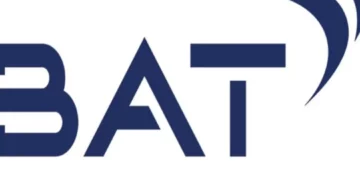The Central Bank of Nigeria (CBN) has reiterated its commitment to boosting wheat production locally by supporting farmers with inputs, technical know-how and off-taking arrangement with the Flour Millers Association of Nigeria (FMAN).
Also, a renowned wheat breeding specialist has said with the intervention of the CBN and African Development Bank (AfDB) in wheat production, it will take 10 years of persistence to be wheat self-sufficient.
The CBN had intervened in the 2021 planting season by importing heat-tolerant, early-maturing and high-yielding varieties.
It also partnered with the FMAN and wheat farmers to multiply seeds that are capable of increasing productivity of farmers and total production volume yearly.
According to former executive Director, Lake Chad Research Institute and Coordinator, Monitoring and Evaluation, CBN Anchor Borrowers’ Programme on Wheat Production, Dr. Oluwashina Gbenga Olabanji, initiatives to increase wheat production are yielding results, even as price of the produce has skyrocketed following crisis in Ukraine and disruption of international supply chains.
Olabanji had disclosed that CBN imported 13,000 metric tonnes of quality heat-tolerant wheat seeds and 150,000 hectares were cultivated in 16 states of the country between October 2021 and April 2022.
He said out of the 150,000 hectares, about 100,000 were meant for grains production to be off-taken by millers
About 50,000 hectares were meant to produce about 250,000 tonnes of seeds needed for cultivation in the 2022/2023 planting season, starting from October 2022.
He disclosed that the National Bureau of Statistics (NBS) had been collating wheat production figures, in partnership with millers and farmers, to arrive at production on data in the period under review.
“Wheat grains harvest expected by the middle of April this year hovers around 400,000 MT, the largest ever produced in Nigeria,” Dr Olabanji had said.
He said NBS would determine the actual production figures, which might surpass or fall below the expectation.
The wheat breeding specialist said significant progress had been made, but admitted that it would take almost 10 years before the country could become fully wheat self-sufficient if efforts are sustained.
The ABP scheme, he said, had empowered wheat farmers with the new heat-tolerant varieties of seeds capable of increasing production per hectare to a minimum of four tonnes per hectare.
However, he lamented that most farmers were proving dubious as debt recovery is currently between 30 and 36 per cent of the facilities advanced to the farmers.
He disclosed that some farmers had been arrested following their fraudulent activities by selling the produce without paying the ABP loans.
Olabanji said a 100kg bag of wheat is between N40,000 and 43,000, and a farmer only needs about nine bags to repay the loans.
Part of the efforts to recoup the loans, he said, is that CBN officials had been drafted to work with farmers’ associations to recoup the loans.
Also, African Development Bank (AfDB) has a 10-year intervention on wheat production in Nigeria and other African countries.
And Olabanji said a strategy is being developed to cover about 11 thematic areas spanning from 2022 to 2032 for wheat sufficiency.
Meanwhile, in 2019, N349 billion worth of wheat was imported into the country. In 2020, Nigeria’s total wheat imports amounted to N756.9 billion, of which N186 billion was sourced from the United States; N144 billion from Russia; N132.3 billion from Canada; N110.6 billion from Lithuania, and N101.9 billion from Latvia.
According to Nigeria’s data agency, the National Bureau of Statistics (NBS), Nigeria imported N898.2 billion worth of wheat in nine months that ended September 2021.
According to the Foreign Affairs Service of the United States Department of Agriculture, Nigeria’s wheat production increased to 99,000 metric tonnes (MT) in 2021, nearly double of 55,000 MT recorded in 2020.
The National President of the Wheat Farmers Association of Nigeria (WFAN), Salim Muhammad, said though there are challenges confronting farmers, such as climate change, production technicalities and inadequate financing, no excuse for loan payment defaulting.
He urged the government to increase its finance to the sector so that Nigeria could produce at least 50 per cent of the yearly demand for wheat soon.
Olabanji’s analysis states that if CBN sustains its intervention in wheat in the next five years, combined with assistance from AfDB and cooperation with farmers and millers, yearly spending on wheat importation would be reduced by at least N500 billion yearly, and that through multiplier effects, millions of jobs would be created along the value chain and demand for dollars and pressure on inflation could reduce by as much as 20 per cent or more.





